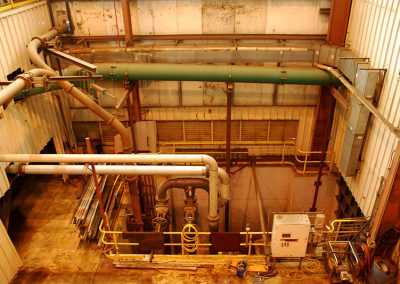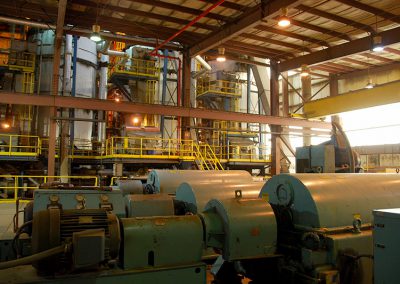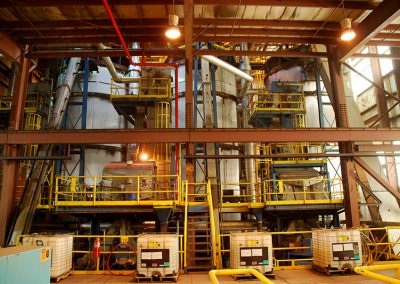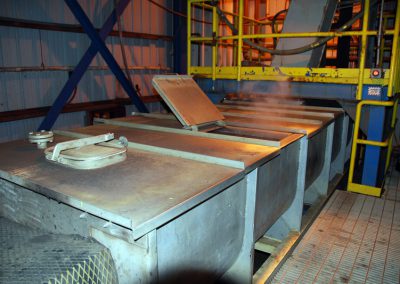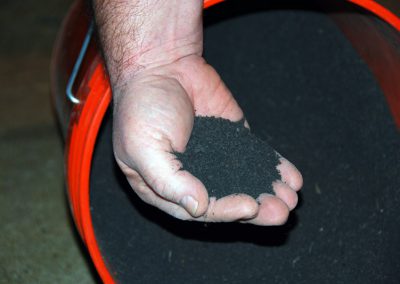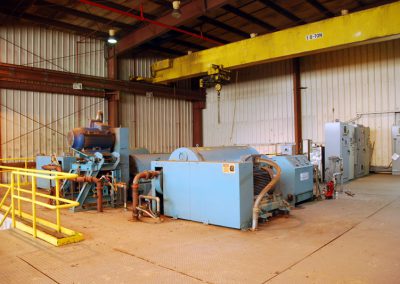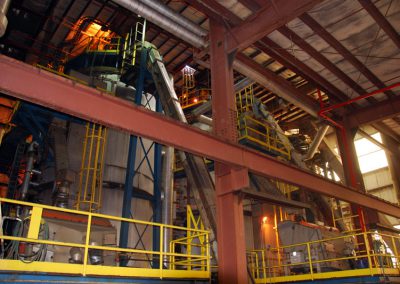Baltimore–Back River Pelletech Facility
National Attention to Surplus Biosolids
Baltimore, Maryland’s Back River Wastewater Treatment Plant had a problem. Process challenges problems led them to store a large volume of biosolids, creating storage and odor issues. The City of Baltimore was served with an assessment that required the removal of more than 200,000 tons of biosolids within five months.
As part of the biosolids removal plan, the compost facility contractor sought to use dewatered biosolids on a Louisiana farm. More than 5,000 tons of biosolids were loaded onto railcars, but only some of the biosolids were used in Louisiana. The train traveled the country looking for an appropriate disposal site, creating negative attention across the nation.
Baltimore and its residents needed a better solution.
Waste Reduction with Heat Drying and Pelletization Technology
The City of Baltimore turned to Synagro to develop a heat drying and pelletization facility. Such a facility could manage the large quantity of biosolids generated by the wastewater treatment process and transform anaerobically digested material into fertilizer.
Synagro’s design, build, own, and operate (DBOO) proposal, which included full financing of the project, promised the processing of up to 110 dry tons of biosolids per day and the management of all disposal operations.
The Baltimore Back River Pelletech Facility is an indirect vertical drying system that runs continuously all year. The versatile design allows for the facility to receive and process liquid and semi-liquid forms of biosolids. Additionally, a five-stage air quality control process removes particulate matter and eliminates volatile organic compounds (VOCs) and odor components of the exhaust stream.
Turning Biosolids Challenges to Long-Term Benefits
The Baltimore Back River Pelletech Facility enabled the City to better manage its biosolids program. Since Synagro is the owner and operator of the facility, the City eliminated the need for up-front capital to fund the project and minimized its responsibility and risk for managing the biosolids program.
The significant benefits for the City and its residents since the facility began operations in 1994 include:
- Creation of pelletized product that is clean, odorless, easy to handle and store, and can be sold as a fertilizer or soil conditioner
- Reduced environmental impact by controlling noise and odor
- Reduced the number of trucks on the roads

